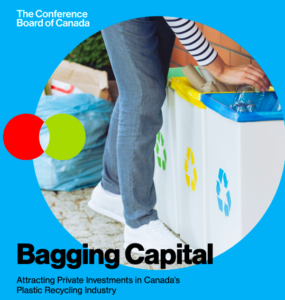- Policy
- Single-use Plastic
- National
- International
Recycling centre closures are symptomatic of a larger crisis
The pile up of recycling in Montreal has reached a crisis which will likely continue to grow, as one of Quebec’s primary recycling operators plans to close two sorting centres in Montreal as early as Feb. 3. Unfortunately, China’s 2018 ban on several types of recyclables has caused a shift in the world market for recycled and recuperated goods, causing a waste crisis in dozens of cities around North America. The uncertain future of Montreal recycling threatens to damage the ethos of recycling and erode trust in sustainable practices.
In recent years, Canadians have tossed paper, plastic, and glass into curbside bins, assuming that they would be recycled into new goods. In 2019, however, exports of recycled materials dropped significantly, leaving cities across Canada to deal with a surplus of these materials. The recycling dilemma Montreal faces is a symptom of a problem that long precedes a flip in the world market. In an effort to simplify the process for consumers, the City of Montreal uses a single-stream recycling process in which all materials are collected together and sent to a sorting facility. While single-stream recycling is easier for residents and has been shown to increase participation rates, it is often more costly and leads to higher contamination rates. Contamination issues are often a result of overzealous individuals who hope to recycle more than is accepted. Even a small amount of food or a used pizza box has the potential to send entire batches of recycling to the landfill.
Even with strict criteria, recycling centres are struggling to keep up. The damage these closures will have on perceptions of sustainability is profound. If Montrealers do not trust that their recyclables are being handled properly, they may lose faith in the entire operation and abandon their previous recycling habits. Similarly, if consumers lose faith in recycling, they may begin to regard sustainable behaviours as an ineffective way to effect meaningful change.
Read the full and original story at McGillTribune.com



